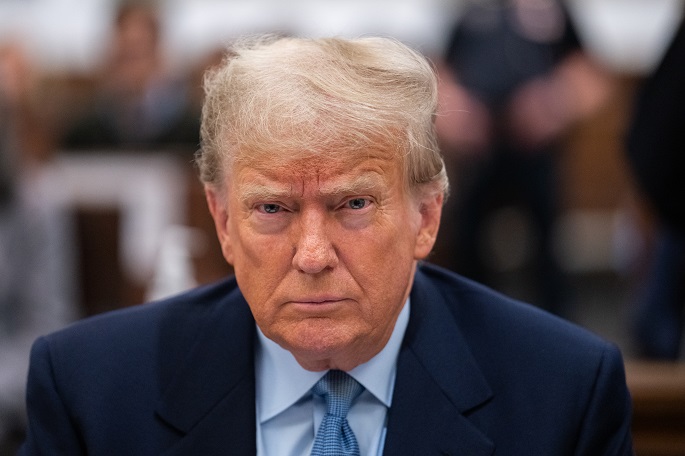Colorado Supreme Court disqualifies Trump from presidential ballot
Published : 20 Dec 2023, 03:03
Updated : 20 Dec 2023, 10:58
The Colorado Supreme Court ruled on Tuesday that Donald Trump is ineligible to run for president in 2024 because of the Jan. 6 riot at the U.S. Capitol, and the Centennial State authority should disqualify the former U.S. president from appearing on the ballot in 2024 presidential election, reported Xinhua.
The Supreme Court, in a 4-3 opinion, found that Trump is barred under a provision of Section Three of the 14th Amendment that prohibits people who engaged in insurrection from running for office and ordered the Secretary of State of Colorado not to list Trump's name on the 2024 presidential primary ballot or to count any write-in votes cast for him.
Colorado's case is the first of many legal challenges across the country to result in a ruling disqualifying Trump from the ballot as the former president seeks the 2024 Republican nomination, also marking the first time in history that Section Three of the 14th Amendment has been used to disqualify a presidential candidate.
Trump has denied any wrongdoing and attacked the case in Colorado and similar lawsuits in other states against him as baseless and anti-democratic.
The Colorado Supreme Court stays Tuesday's ruling until Jan. 4, 2024, the day before the deadline for the Secretary of State to certify its presidential primary ballots, pending a likely appeal requiring to include Trump's name on the March 5 primary ballot unless the federal justices order otherwise.
It's a near-certainty the case will head to the U.S. Supreme Court, the Denver Post predicted, adding that Steven Cheung, a spokesperson for Trump's campaign, promised to file an appeal to the U.S. Supreme Court quickly.
Cheung called the Colorado Supreme Court's decision "completely flawed."
All seven members of the Colorado Supreme Court were appointed by the state's Democratic governors. The suit was filed in early September against Trump and Colorado Secretary of State Jena Griswold, but the legal battle has always been between the plaintiffs and Trump's legal team.
Section Three of the 14th Amendment says officials who take an oath to support the Constitution are banned from future office if they "engaged in insurrection." The Civil War-era constitutional clause is designed to disqualify anyone who took the oath of office in the Confederacy from running for public office.
It does not explicitly mention the presidency and has only been applied twice since 1919.
The Colorado Supreme Court's majority on Tuesday reversed a lower court's decision that the president was not an "officer" under the Constitution; therefore, the clause did not apply.
Trump has frequently claimed "presidential immunity" in legal cases against him, trying to also have the felony charges against him dismissed.
"We have full confidence that the U.S. Supreme Court will quickly rule in our favor and finally put an end to these un-American lawsuits," Cheung said in a statement.
Nevertheless, U.S. District Judge Tanya Chutkan rejected his "immunity" claim on felony charges, ruling Trump's time in the White House did not give him the "divine right of kings to evade the criminal accountability that governs his fellow citizens."
Trump's team was counting on the winding appellate process to delay the trial past the November 2024 election.
Lawsuits citing the 14th Amendment against Trump were dismissed early by multiple courts in many states, including Michigan, Minnesota, Washington, Arizona, Rhode Island, New Hampshire and Florida.


